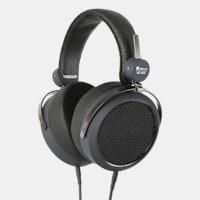Click to view our Accessibility Statement or contact us with accessibility-related questions
Free Standard Shipping in the US on orders over $99
Free Standard Shipping in the US on orders over $99
PRODUCTS YOU MAY LIKE
Drop Refurbished
Like-new products you can trustDrop Rewards
Get $5 for every 500 points you earn! Learn more
Drop Keyboard Club
Become a member and expand your keycap collectionCollaborate With Us
For Brands & Designers© 2024 Drop










The biggest thing you need to worry about is if you are using ALSA or PulseAudio. You want to use ALSA, because ALSA will play the stream directly on the hardware. Unfortunately Pulseaudio literally remixes everything into 48Khz--regardless of the sample rate of the input file. I confirmed this by playing a 32/384 file and realized that pulseaudio downgraded it to 32/48. I was soooo pissed.
Most modern distributions use pulseaudio. It is possible to downgrade to ALSA, but the procedure is different for every distro.
You can easily check if your dac is downmixing, first grab a 32/384 file from the following testbench site: http://www.2l.no/hires/index.html
Figure out which card your dac is: aplay -l
Then run the following command (make sure you use the correct card# from the command above): cat /proc/asound/card0/pcm0p/sub0/hw_params
cat /etc/pulse/daemon.conf ...
; resample-method = speex-float-10 resample-method = src-sinc-best-quality
default-sample-rate = 176400 alternate-sample-rate = 192000
...
And to restart: pulseaudio -k
does either default or alternate hold priority if the files are actually that sample rate and the other is just fallback if they dont?
I set the default to 176.4 because thats 44.1 * 4 (so 4 times upsampling). Really it depends on what your dac can handle, but the value you settle on is personal choice really. My ess9038 pro (same dac thats in DX7s), can handle up to 512 pcm, so I could bump it up more. I'll mess around with it when I get home and let you know.
The unfortunate thing is, this is all pulse audio resampling. I chose 192 as the alternate because thats the highest sample rate flac files that I have. (Although, I suppose those 192 files can easily be upsamples to 384.)